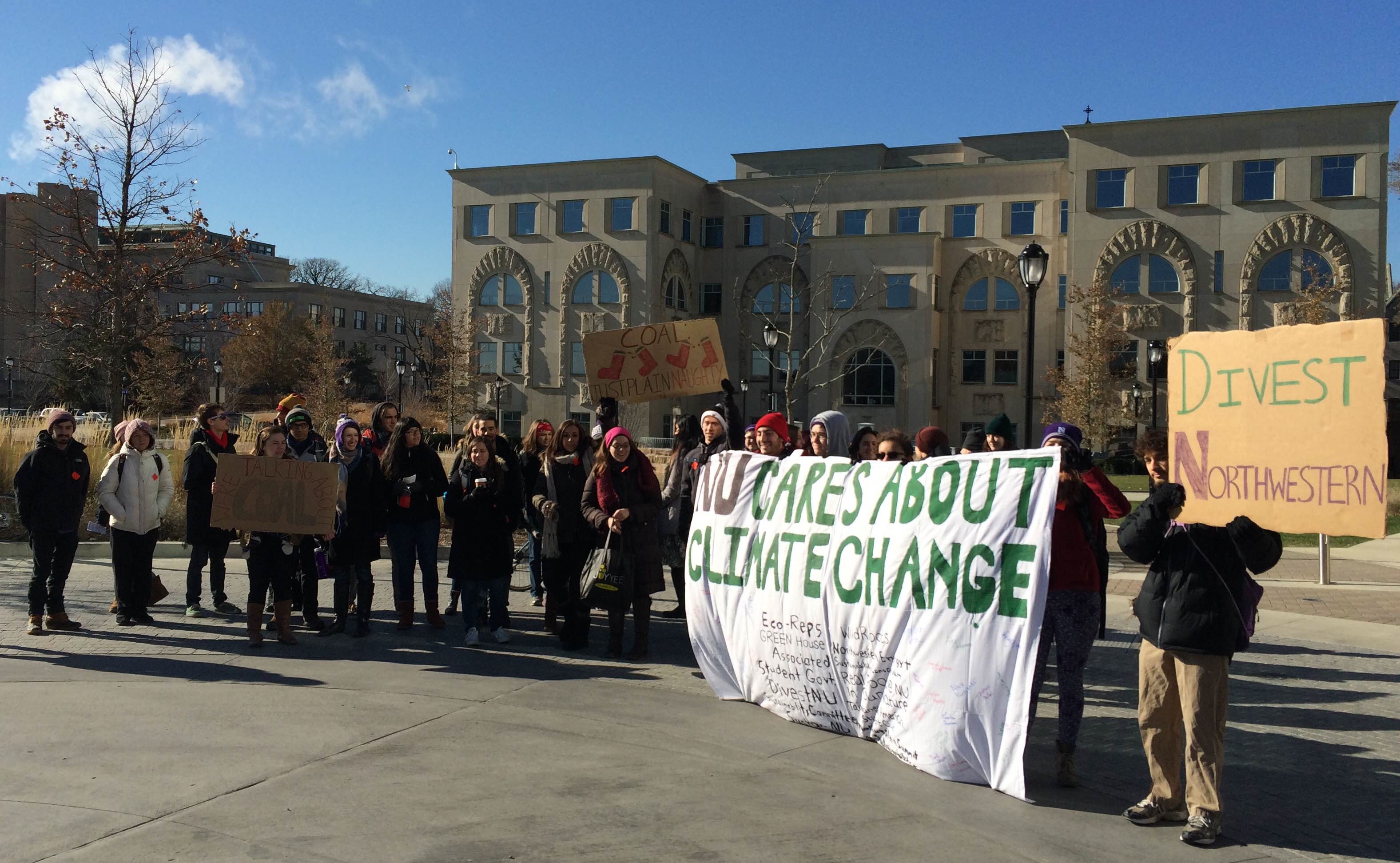
Updated Nov. 23 at 1:28 p.m. – DivestNU is not pushing for divestment from all fossil fuels, only divestment from coal.
“We want solutions, not coal pollution,” chanted students outside Northwestern’s Board of Trustees meeting on Friday morning. They wanted to convince the board to sell the university’s shares in companies in the coal industry.
About 35 students carrying banners and signs marched from Norris to the outside Allen Center, where the board meeting was scheduled to take place, shouting slogans, holding up their banner, speaking and handing informational flyers to trustees. While neither the board nor their investment subcommittee, which has final say over the endowment, were discussing or voting on the divestment issue, DivestNU protested to show the board that ending coal investments is important to the Northwestern community, said Scott Brown*, a member of the student group DivestNU, which organized the event.
“I think it was really successful,” said Brown. “We tried to talk to as many trustees as we could, so I think that was probably the most successful thing. A bunch of trustees walked by and saw our banner. A few of them we actually talked to and they voiced their opinions.”
Brown and DivestNU met privately yesterday to discuss divestment with William McLean, vice president and chief investment officer, as well as Bon French, head of the investment subcommittee. While DivestNU and McLean have had a productive working relationship for the past few months, it was the student group’s first time speaking directly with anyone on the investment committee.
“We wanted to eliminate the middle man,” said Brown. “The result was a really good discussion, it was very productive and we were able to make a lot of points to him and they were able to tell us some of their new concerns.” One of the concerns Brown said the board had was that they are worried about receiving negative press for divesting, which Stanford received after they divested from coal, but not oil and gas.
However, DivestNU remains optimistic that they will convince the board to cease investing in coal.
“I think the protest went great; our point was to demonstrate to the trustees that there is student support for coal divestment,” said David Snydacker, a Ph.D student in McCormick and researcher for DivestNU. “I feel optimistic. Trustees are not yet supportive but willing to listen to students.”
Snydacker said the group will continue to meet with the board “until this issue is resolved.”
Northwestern has about a $9.5 billion dollar endowment, but only $17 million was invested in the top 100 companies reliant on the coal industry in 2013, said McLean. He also said that the university had about $64 million invested in green alternative energy in 2013.
DivestNU also protested for more alternative green investments.
"Today was a way to encourage them to find ways to invest in companies that aren't involved in the coal industry and use cleaner energy,” said Justine Hung, a freshman in Weinberg and a new member of DivestNU. “The goal is to show the board that students in NU do care about divesting from the coal industry.”
Northwestern has a history of selling holdings in certain companies or fields because of human rights issues, such as the university’s divestment from companies operating in Darfur, Sudan during the genocide in 2005. DivestNU argues today “that climate change is a human rights issue,” citing, for example, the thousands of Chinese citizens who have died from air pollution.
A subcommittee of the investment committee will be meeting in the winter, and Brown said that DivestNU will try and have representatives at that meeting, though no vote will be taken on divestment.
*Disclaimer: Brown is also a writer for North by Northwestern.
Zahra Haider contributed reporting.